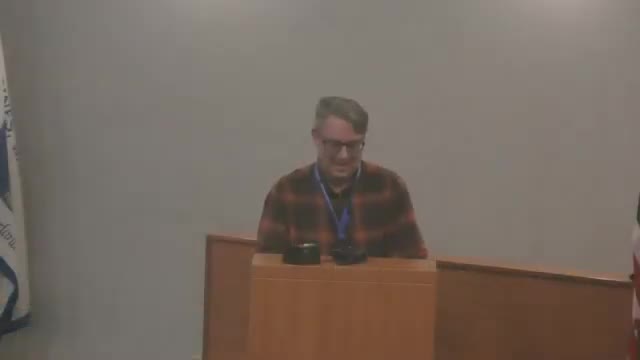Council advances draft public safety sales tax ordinance to second reading; estimated proceeds $450,000
October 03, 2025 | Des Moines City, King County, Washington
This article was created by AI summarizing key points discussed. AI makes mistakes, so for full details and context, please refer to the video of the full meeting. Please report any errors so we can fix them. Report an error »

The Des Moines City Council Committee of the Whole held a first reading on Oct. 2 of draft ordinance 25‑053 to impose a 0.1 percentage‑point public safety sales tax and voted to advance the ordinance to a second reading at the Oct. 9 regular meeting.
Jeff Friend presented the ordinance background and statutory requirements, noting the law (House Bill 2015) creates a local councilmanic sales and use tax for criminal‑justice purposes and a separate grant program for law‑enforcement hiring and training. Friend said the city already receives state criminal‑justice sales tax proceeds into its general fund and that the Des Moines Police Department meets the compliance requirements in the statute related to training, use‑of‑force reporting and related policies.
The ordinance would raise the local retail sales tax rate from 10.20% to 10.30% (a 0.1 percentage‑point increase). Friend and staff estimated annual proceeds at about $450,000. Permissible uses are broadly defined in the statute and include criminal‑justice activities and programs that substantially assist the criminal‑justice system — examples cited included recruitment and retention of law‑enforcement officers, increased public‑defender costs, jail costs, mental‑health crisis response, diversion programs and community outreach.
Friend also noted a related grant program that — if the state funds it — could provide up to $125,000 per new officer hired for up to three years, intended as seed funding for expanding sworn positions; that grant would generally require the jurisdiction to have already imposed the sales tax. He cautioned the grant is subject to state appropriation and therefore not guaranteed.
Timing: state Department of Revenue deadlines require notice well before any proposed start date. Friend provided example deadlines under state law for Jan. 1, April 1 and July 1 start dates and said staff would create a special revenue fund and reporting structure if the council adopts the ordinance.
Action: Council Member Mahoney moved to advance draft ordinance 25‑053 to a second reading on Oct. 9; Deputy Mayor Steinmetz seconded. The motion passed by voice vote, recorded as unanimous 5‑0 at the time of the vote. The council meeting packet and staff presentation included estimated uses and next steps should the tax be adopted.
Jeff Friend presented the ordinance background and statutory requirements, noting the law (House Bill 2015) creates a local councilmanic sales and use tax for criminal‑justice purposes and a separate grant program for law‑enforcement hiring and training. Friend said the city already receives state criminal‑justice sales tax proceeds into its general fund and that the Des Moines Police Department meets the compliance requirements in the statute related to training, use‑of‑force reporting and related policies.
The ordinance would raise the local retail sales tax rate from 10.20% to 10.30% (a 0.1 percentage‑point increase). Friend and staff estimated annual proceeds at about $450,000. Permissible uses are broadly defined in the statute and include criminal‑justice activities and programs that substantially assist the criminal‑justice system — examples cited included recruitment and retention of law‑enforcement officers, increased public‑defender costs, jail costs, mental‑health crisis response, diversion programs and community outreach.
Friend also noted a related grant program that — if the state funds it — could provide up to $125,000 per new officer hired for up to three years, intended as seed funding for expanding sworn positions; that grant would generally require the jurisdiction to have already imposed the sales tax. He cautioned the grant is subject to state appropriation and therefore not guaranteed.
Timing: state Department of Revenue deadlines require notice well before any proposed start date. Friend provided example deadlines under state law for Jan. 1, April 1 and July 1 start dates and said staff would create a special revenue fund and reporting structure if the council adopts the ordinance.
Action: Council Member Mahoney moved to advance draft ordinance 25‑053 to a second reading on Oct. 9; Deputy Mayor Steinmetz seconded. The motion passed by voice vote, recorded as unanimous 5‑0 at the time of the vote. The council meeting packet and staff presentation included estimated uses and next steps should the tax be adopted.
View full meeting
This article is based on a recent meeting—watch the full video and explore the complete transcript for deeper insights into the discussion.
View full meeting
